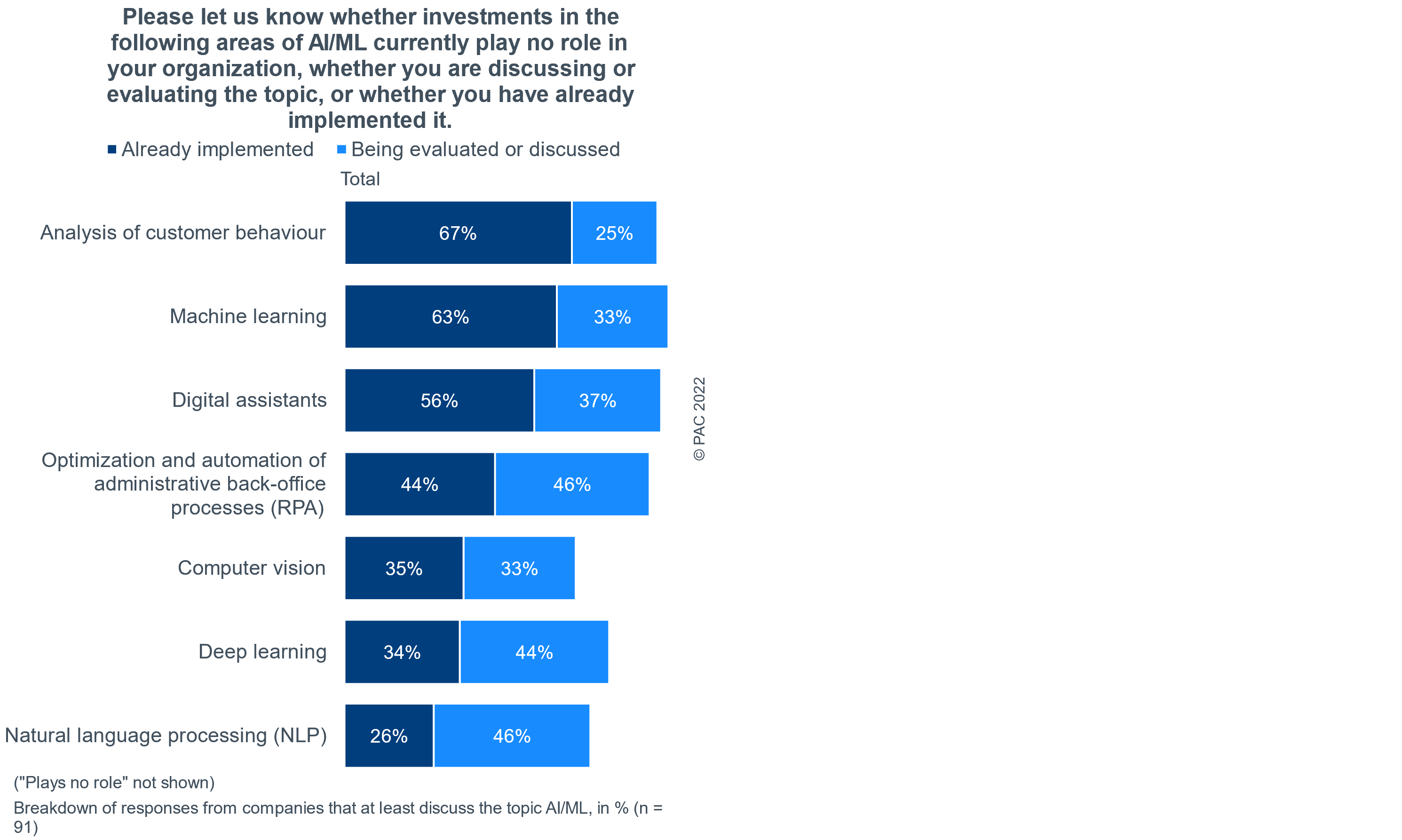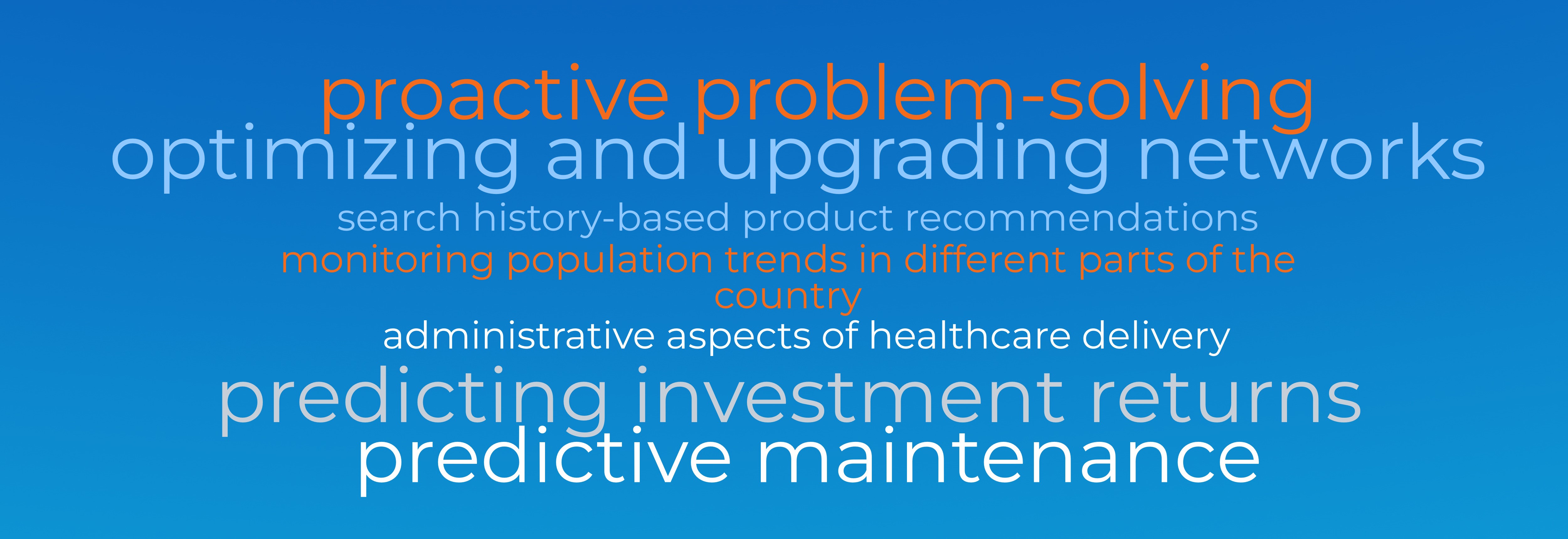Fields of digital innovation: AI/ML - V
Machine learning (ML) and artificial intelligence (AI) technologies can be used to address many of the identified targets of digital innovation, namely improved customer experience, security, efficiency, and sustainability, by complementing human abilities in a variety of areas, such as perception and understanding, reasoning and problem-solving, learning and training, and interaction with the surroundings and with people. The fields of application range from robotic process automation (RPA) and robotic desktop automation (RDA) to expert systems, chatbots, assistants, and autonomous systems such as industrial robots and cars.
As a consequence, the adoption of ML and AI has seen a massive increase across all industries in recent years; more than half of the decision-makers surveyed confirmed that their organization had already implemented first AI and ML solutions.

The training of AI applications requires enormous memory and computing resources, which can often be provided in the required quantities by IaaS providers only. That is why many AI applications run in a cloud environment. However, the cloud is not necessarily the best solution for all workloads. It may be cheaper and reduce latency, for instance, to operate data-heavy AI applications in production on-premises, i.e., in customer data centers, third-party, or edge locations. It can be challenging to manage these complex architectures, including aspects such as physical accessibility, network connectivity and bandwidth, scale, latency, control and maintenance, data accumulation, and security.
As there is a shortage of skills relating to artificial intelligence and machine learning, more and more ready-to-use building blocks, such as for image and speech recognition in the cloud, are being offered, enabling developers with less specialized knowledge to integrate machine learning and AI into their applications. At the same time, low-code offerings increasingly address subject matter experts such as data scientists or ML specialists without extensive programming skills. In addition, core applications and SaaS solutions are increasingly infused with advanced analytics, machine learning, and AI.
Also in the ML/AI space, analysis of customer behavior and digital assistants, i.e. customer experience and service, were among the most frequently addressed fields of application. In addition, respondents mentioned various further application areas for machine learning and AI, including highly specialized ones:
Further areas of application
In production
Being evaluated or discussed
Nevertheless, despite the recent surge in new AI initiatives, companies often struggle to scale up solutions. Given the various current crises, organizations are expected to reduce costs, which is why the use of ML and AI to enable optimization and automation will accelerate in the short run. AI-enabled solutions can help to analyze large amounts of data from various sources and improve efficiency in processes related to supply chains or production and operation. This allows companies to reduce their energy and resource consumption. In addition, increased automation not only helps to increase efficiency and reduce failure rates, but also to mitigate the omnipresent skill shortage.

